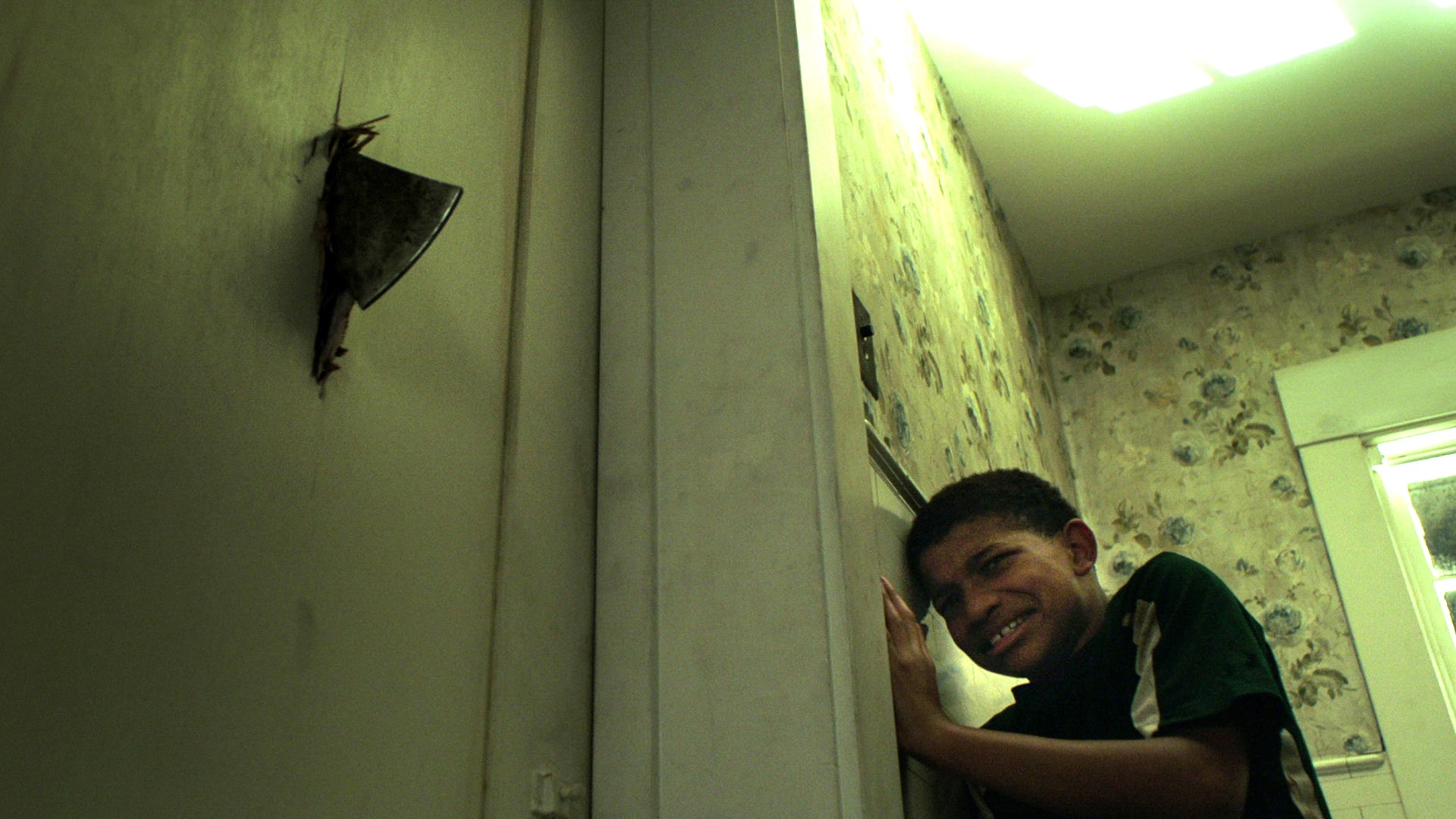What to Watch Verdict
‘The Boy Behind the Door’ is simple and efficient storytelling that understands how to sustain tension with nothing more than a few characters in an extremely traumatizing scenario.
Pros
- +
⚾ Proper child actors.
- +
⚾ Easy peasy horror.
- +
⚾ Simplicity as a benefit, not detrator.
Cons
- -
⚾ Some might say “formulaic” instead of simple.
- -
⚾ Restricted by the boundaries of its script logic.
- -
⚾ Nothing flashy, and sometimes that’s a bummer.
The Boy Behind the Door marks two feature releases in 2021 for directors David Charbonier and Justin Powell—a duo of steady horror watches fronted by stellar adolescent performances. I appreciate The Djinn for its supernatural simplicity, much like how I’m drawn to the way The Boy Behind the Door generates tension from an uncomplicated kidnapping scenario. Casting children is a challenge not only because production days are capped by labor-rule hours, but we all have that unfortunate example of an unerrage performance that forever discolors a forgotten title. The Djinn and The Boy Behind the Door defy the odds, especially for the latter’s sake, where human elements of an unsettlingly dark tale intensify as innocence is stripped bare.
Best friends Bobby (Lonnie Chavis) and Kevin (Ezra Dewey) play catch before their little league game when a stranger clocks them unconscious. Bobby awakes in the closed trunk of a sedan as Kevin is dragged kicking and screaming inside. Luckily Bobby slams the trunk hatch open and sneaks in undetected, finding Kevin chained inside a dimly lit room. A man (Micah Hauptman) chases Bobby around the house, presumably the guilty party, but he’s only the first obstacle the two pre-teen boys face as they struggle to escape their newfound rural prison.
If Charbonier and Powell assert any signature over their debut and follow-up, it’s their no-frills approach to meaningful horror. The Boy Behind the Door features these shots that remind of Better Watch Out, where youngsters are trapped inside with a maniac. That’s not to say tonal cues ever align—The Boy Behind the Door does not achieve darkly comedic accents. Instead, direness and distraught pleas become the sobering language of the film’s screenplay, which never intervenes parental saviors. Bobby and Kevin are alone, fighting against purely evil men and women who are criminals of the most repugnant sense.
The introduction of Ms. Burton (Kristin Bauer van Straten) reveals the revolting seediness of Kevin’s predicament—an exchange for money between Ms. Burton and the nameless man should tease why Kevin’s locked inside a bedroom. The Boy Behind the Door is proficient in establishing the schoolyard dangers that all mothers and fathers instill within their kin, which again becomes this almighty nastiness as Bobby is forced to do the unthinkable while still wearing his green-and-white uniform. One minute two hopeful all-stars are tossing a baseball, the next shock-collars are powered on, and knives stab into flesh. The mood never softens as cinematography favors midnight darkness where predators make their profits off unspeakable abuse.
Credit to both Lonnie Chavis and Ezra Dewey, who emphasize their characters’ ages in the face of immorality and alarm. The Boy Behind the Door struggles with survivalist logic as Bobby keeps dropping weapons at his adversary’s feet, but then we recall our cognitive abilities some decades ago. When Bobby fails to master the unlearned skill of driving or can’t bring himself to slice an Achilles tendon, it’s more about elementary school—middle school at most—students not possessing the ability to embrace their inner John McLanes. If there’s one thing both pint-sized actors succeed in conveying, it’s the genuine fear felt on both sides of the titular door. The bond of friendship between Bobby and Kevin is indelibly wholesome, which swells this sensation of investment in their avoidances, flees, and eventual standoff come the film’s blood-soaked finale.
There’s not much more I care to reveal about The Boy Behind the Door because its proficient implementation of suspense and empathy is not at all complicated. I commend Lonnie Chavis and Ezra Dewey on their abilities to sell the authentic terror of their characters’ experience, down to the painful punishments they endure. Likewise, David Charbonier and Justin Powell notch another example that showcases their resilience with lower budgets, unafraid to approach minimalist horror that smartly embraces the inherent dread of framing genre narratives through childlike perspectives. It’s brutal in spurts, gut-gritty mean in others, and wholly formulaic without ever succumbing to what some might dispute as generic thriller architectures. I guess I’ve just seen too many filmmakers fumble with the same streamlined approaches, where Charbonier and Powell are now humbly two-for-two.
The latest updates, reviews and unmissable series to watch and more!
Matt Donato is a Rotten Tomatoes approved film critic who stays up too late typing words for What To Watch, IGN, Paste, Bloody Disgusting, Fangoria and countless other publications. He is a member of Critics Choice and co-hosts a weekly livestream with Perri Nemiroff called the Merri Hour. You probably shouldn't feed him after midnight, just to be safe.


